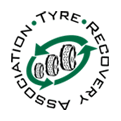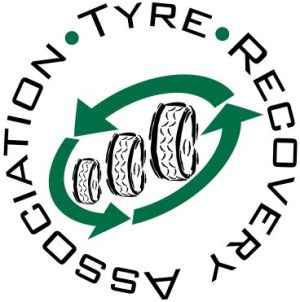Press Release - TRA welcomes changes to export rules – 07 October 2025
Tyre Recovery Association Annual Forum attracts record number of delegates
The 2012 Tyre Recovery Association Annual Forum, held in Warwickshire this year, attracted a record number of delegates. It reflects the increasing interest in tyre recovery which, according to TRA president Mike Wilson, has moved a long way up the industry agenda over the past decade.
The six presentations covered a wide range of issues related to tyre recovery including the continued development of the Responsible Recycler Scheme, two presentations from the Environment Agency and for the first time, a contribution from the Motor Vehicle Dismantlers Association.
This year’s Forum theme was “A Commitment to Excellence” and setting the scene in the first presentation Michelin’s Darren Lindsey reflected on the dynamic changes within the tyre industry marketplace with the shift from west to east and how China was looking to the UK for innovation. He also complimented the TRA on its professionalism and their practical and effective approach to dealing with scrap tyres however he warned of the problems associated with unsafe second hand tyres feeding back into the market, an issue that was repeated by other presenters.
The next two presenters represented the Environment Agency. Enforcement campaign officer, Paul Keay delivered a powerful presentation on the approach being taken by the EA to tackle illegal dumping of waste including tyres. He outlined the five key priorities that the EA are working towards: Illegal Waste Sites; Illegal Export of Waste; Large scale organised dumping of waste; Priority Offenders and Priority Waste streams, including tyres.
Paul made the point that waste costs the UK millions of pounds every year and causes significant harm to the environment, human health and wildlife. It also undermines the legitimate waste business and damages the reputation of the industry. Finally it affects the local environment and community quality. To underline the EA’s commitment to tackling the problem of waste, Paul announced that a £5 million national task force has been set up involving 50 extra specialist staff. In relation to illegal waste sites the team has successfully closed down over 800 illegal sites with prosecutions brought against the worst offenders.
On illegal waste tyre exports Paul made the point that this hurts the legitimate UK recycling industry as well as the environmental impact. To counter this problem the Agency approach is very much intelligence lead with a dedicated team based at Felixstowe. In addition, Paul outlined the partnership approach which includes organisations in 46 countries, INTERPOL, the police, HMRC Shipping Lines, however, he pointed out that a key element is information provided by the industry by checking thoroughly all paperwork and reporting any suspicious activities. The latter is easy and totally confidential said Paul either the national.intelligence@environment-agency.gov.uk or to Crimestoppers on 0800 555 111
As an indication of the success that the Agency is achieving, Paul reported that 40 investigations into tyre offences have been undertaken and over 400 prosecutions achieved for waste crime. Importantly the value of orders for the proceeds of crime topped £2.5 million and several offenders were given prison sentences. As a means of bolstering the Environmental Crime Teams the Agency was recruiting ex-police officers, forensic experts, intelligence analysts and key to the success was the increased use of arrest and bail of possible offenders.
As a measure of success recent cases pinpointed included an £800,000 order for an illegal waste site in Berkshire; a 12 month prison sentence for an offender running an illegal tyre dump in West Yorkshire; tyre fires have led to imprisonment for illegal operators and an illegal tyre site in Wales was cleared. Paul also reported that offenders in Yorkshire and the South West of England had been convicted with further arrests in Lancashire and he promised that more will follow.
Know your Collector was the title of a presentation by Jane Whitelaw a waste advisor at the Environment Agency. She started her presentation with a number of interesting facts; 55 million used tyres in the UK. On the downside Jane said that there had been 26 tyre fires in 2011 of which four where major and three occurred at illegal sites with arson being the common factor. Tyres were also the third most common fly-tipped waste and in 2011 there were nine tyre related prosecutions with fines totalling £65,000.
Jane then moved on to how to prevent these problems and key to this is fulfilling the duty of care. She outlined seven ways that companies can discharge their responsibilities. 1. Taking all reasonable steps to keep waste safe. 2. Preventing waste tyres “escaping” from a retailers/companies control. 3. Preventing them from causing pollution or harm. 4. Only hand waste to an authorised person in other words a registered waste carrier or a permitted site. 5. Complete a waste transfer note and describe the waste and ensure that both parties sign it. 6. Think and act. In other words is the service too cheap? Are they reputable? And finally 7. Report any malpractice.
It is also important to point out, said Jane, that it is a criminal offence to ignore one’s Duty of Care law as this could result in a fine of up to £5,000 in a magistrates court or an unlimited fine in a crown court. Further implications can be bad media coverage, loss of business reputation, potential loss of the carrier’s licence and it could also have an impact on company insurance which may increase.
Jane then went on the announce outline plans for a Duty of Care Partnership Campaign involving TRA members and the Environment Agency, which is about to get underway.
A tyre retailer’s perspective was given by ATS Euromaster’s Columba Zaal who outlined his company’s approach to dealing with the tyres removed from vehicles in their branches. They fully embrace the Responsible Recycler Scheme. However, he also commented on the fact that used tyres are regularly fly tipped at ATS sites, an issue he believes is affecting other tyre retailers which adds to individual company costs.
Dr Charles Ambrose, Chairman of the Motor Vehicle Dismantlers Association which represents about 10% of the total number of dismantlers in the UK. He estimated that around 1.1 million end of life (ELV’s) are disposed of each year in the UK with the balance he believes being exported, some illegally. The MVDA estimates that 25% of tyres removed from ELV’s are suitable for re-use.
The final presentation was given by the President of the Tyre Recovery Association Mike Wilson. He sketched out some of the future plans for the TRA. The Responsible Recycler Scheme was he said at the cornerstone of the work of the association and was a best practice scheme and the standard which all in the industry should aspire to. Looking forward it will be important for the TRA to progress the scheme and the relationship with the Environment Agency should be developed further. The TRA already offers PAS 107 QP accreditation and the association will shortly incorporate safe storage guidelines as outlined in PPG29/Tyres.
One key issue remarked on by Mike, and a subject that is causing considerable concern in the tyre industry, was Site Exemptions. The TRA would like to see a moratorium on new sites until all existing sites have been checked for regulatory compliance. Mike also touched on the subject of part worn tyres. These are an issue because the regulations are not being enforced and the thousands of tyres outlets that could potentially sell part worns cannot be monitored by Trading Standards because of lack of resources. A simple process could be developed between the TRA and ABRICON to ensure that the correct inspection for safety and marking for security is performed correctly by those selling part worn tyres.
Summing up the day Peter Taylor the Secretary General of the TRA said that it had been a very worthwhile experience with some excellent and meaningful presentations. He said that it would be wrong to expect a single answer to the problems faced by the industry or expect the Environment Agency to solve all of the tyre industry’s problems. Industry leaders must also look to themselves to bring about changes for the better for enhanced standards of operation.

